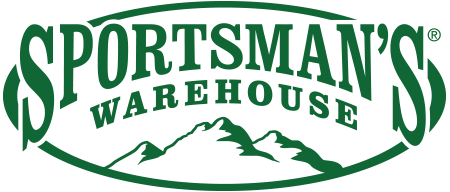November 7, 2017
In a continuing effort to increase access to hunting and fishing on public lands, the U.S. Fish and Wildlife Service today announced a final rule to open or expand opportunities across 132,000 acres on 10 national wildlife refuges. This will bring the number of refuges where the public may hunt up to 373 and up to 311 where fishing is permitted.
Hunting, fishing and other outdoor activities contributed more than $156.3 billion in economic activity across the United States according to the Service’s National Survey of Fishing, Hunting and Wildlife-Associated Recreation, published every five years. More than 101.6 million Americans – 40 percent of the U.S. population 16 and older – pursue wildlife-related recreation. The final rule opens more than 60,000 acres of Refuge System lands for hunting species not previously authorized in these areas.
“The nation’s sportsmen and women lead the conservation of wildlife and their habitats throughout our nation. They are passionate about the outdoors and are committed to sustainably managing these resources for all Americans to enjoy. Refuges provide all Americans with places to hunt, fish, observe the natural world firsthand and experience the great outdoors,” said Service Principal Deputy Director Greg Sheehan. “We are pleased to be able to offer hunting and fishing opportunities and other recreational activities where they are compatible with national wildlife refuge management goals.”
Hunting and/or fishing will expand or be opened on the following refuges:
Georgia and South Carolina
- Savannah National Wildlife Refuge: Expand migratory game bird hunting, upland game and big game hunting. The refuge is already open to migratory game bird hunting, upland game and big game hunting, and sport fishing.
Indiana
- Patoka River National Wildlife Refuge: Expand migratory game bird hunting, upland game and big game hunting, and sport fishing. The refuge is already open to migratory game bird hunting, upland game and big game hunting, and sport fishing.
Minnesota
- Minnesota Valley National Wildlife Refuge: Expand migratory game bird hunting, upland game and big game hunting. The refuge is already open to migratory game bird hunting, upland game and big game hunting, and sport fishing.
North Dakota
- Des Lacs National Wildlife Refuge: Open moose hunting for the first time. The refuge is already open to upland game and other big game hunting.
- Upper Souris National Wildlife Refuge: Open moose and turkey hunting for the first time. Expand upland game and big game hunting. The refuge is already open to upland game hunting, other big game hunting, and sport fishing.
Oklahoma
- Sequoyah National Wildlife Refuge: Expand upland game and big game hunting. The refuge is already open to migratory game bird hunting, upland game and big game hunting, and sport fishing.
Oregon
- Baskett Slough National Wildlife Refuge: Expand migratory game bird hunting. The refuge is already open to migratory game bird hunting.
- Siletz Bay National Wildlife Refuge: Open sport fishing for the first time. The refuge is already open to migratory game bird hunting.
Wisconsin
- Fox River National Wildlife Refuge: Expand big game hunting. The refuge is already open to big game hunting.
- Horicon National Wildlife Refuge: Expand migratory game bird hunting and upland game and big game hunting. The refuge is already open to migratory game bird hunting, upland game and big game hunting, and sport fishing.
More than 50 million Americans visit refuges every year. National wildlife refuges provide vital habitat for thousands of species and access to world-class recreation, from fishing, hunting and hiking to nature watching, photography and environmental education. In doing so, they support regional economies to the tune of $2.4 billion per year and support more than 35,000 jobs. The unparalleled network of 566 national wildlife refuges and 38 wetland management districts means that there is a national wildlife refuge within an hour’s drive of most major metropolitan areas.
Under the National Wildlife Refuge System Improvement Act of 1997, the Service permits hunting and fishing along with four other types of wildlife-dependent recreation, including wildlife photography, environmental education, wildlife observation and interpretation, when they are compatible with an individual refuge’s purpose and mission. Hunting, within specified limits, is currently permitted on 336 wildlife refuges and 37 wetland management districts. Fishing is currently permitted on 277 wildlife refuges and 34 wetland management districts.
The final rule will become effective upon publication in the Federal Register on November 8, 2017.
Contact(s):
Vanessa Kauffman
703-358-2138
vanessa_kauffman@fws.gov

